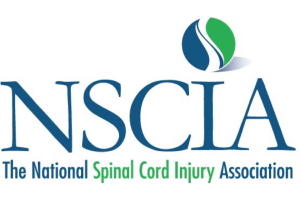Semi Truck Accidents
Atlanta Lawyers Handling Tractor-Trailer and
Commercial Truck Accident Cases
Throughout Georgia and the Southeast
Attorneys at Ragland Law Firm, LLC are prepared for litigation against the trucking industry and any motor carrier whose tractor trailer, semi-trailer truck or other large commercial truck causes an accident in which motorists or pedestrians are killed or seriously injured. Large truck accidents are a primary focus of these Georgia trial lawyers. They have experience with pursuing personal injury and wrongful death lawsuits against interstate truckers and companies which own or operate 18 wheelers, logging trucks, tanker trucks, cement trucks, dump trucks, delivery trucks and other large commercial vehicles. Ragland Law Firm, LLC will handle truck accident cases anywhere in Georgia, Alabama, Florida, Tennessee and South Carolina.
Motor Carrier Litigation Presents Unique Legal Issues and Challenges
Accidents involving tractor trailers and other large commercial trucks give rise to many unique legal issues which are not presented in cases involving cars, pick-up trucks or other personal passenger vehicles. There are both federal and state laws and motor carrier regulations which only apply to large trucks over a certain size. There are also federal laws and regulations which apply specifically to the interstate trucking industry. Unlike automobile owners, motor carriers are legally required to maintain and operate their trucks and equipment strictly in accord with numerous federal guidelines, and certain commercial trucks can only be driven by persons who have obtained a Commercial Drivers License (CDL) and who are otherwise specially qualified to operate that type commercial vehicle. The manner and hours of operating a tractor trailer or other large truck involved in interstate commerce are heavily regulated by the federal government. In addition, the size, configuration and heavy loads of these large commercial trucks make them very different from and more dangerous than smaller private passenger vehicles. Even the insurance requirements and liability policies covering large trucks and/or their owners are different. Moreover, the investigation of a trucking accident presents unique challenges because of the large machinery and sophisticated equipment which is involved. Likewise, there are important computer data and written documents which are supposed to be maintained by the driver and/or trucking company, and it is critical that these records be requested and appropriately analyzed by qualified lawyers and trucking experts during any post crash investigation or ensuing litigation.
Qualified Georgia Trucking Litigation Attorney
Truck accidents often result in serious injury or death, and the victims need aggressive legal representation from an attorney who is familiar with the insurance requirements for motor carriers, and who is knowledgeable about the federal and state laws and regulations which govern the trucking industry. Truck accident victims should only entrust their case to attorneys who have expertise in the field of motor carrier liability and interstate trucking litigation. Personal injury and wrongful death cases involving a tractor trailer or other large commercial truck are significantly more complex than cases involving automobiles, small pick-up trucks and other personal passenger vehicles. Among other differences, there are additional laws applicable to motor carriers, and there are many legal issues presented in a large truck case which are not usually found in a typical motor vehicle accident case. Therefore, truck accident victims will benefit from lawyers who know how to investigate trucking accidents, who know what data and records to obtain, and who can take advantage of the unique claims and legal issues often presented in motor carrier cases.
The attorneys at Ragland Law Firm, LLC are qualified and capable of handling accident cases involving tractor trailers and other large commercial vehicles. In addition to having actually handled cases involving large trucks, Daniel Ragland devotes a good deal of his time studying this field, and participating in professional groups dedicated to truck safety advocacy and the training of lawyers who regularly handle trucking litigation. Mr. Ragland is an active member of the Association of Interstate Trucking Lawyers of America (AITLA), as well as the Interstate Truck Litigation Group of the American Association for Justice. Lawyers in these professional groups receive literature and training materials addressing motor carrier liability, and they attend educational seminars with other highly qualified trucking litigation attorneys.
Dangers Posed by Tractor Trailers and Other Large Commercial Trucks
There are between eight and nine million large trucks registered in the United States. The presence of these large trucks poses a significant danger to the motoring public. Every year, approximately 5,000 people are killed and more than 100,000 are seriously injured in large truck related accidents. Thus, every 16 minutes, someone is hurt or killed in an accident involving a tractor trailer or other large truck. Usually, less than 20% of the deaths or injuries are to an occupant of the large truck; more than 80% involve pedestrians, pedal cyclists or persons occupying the other motor vehicle involved in the crash.
Any accident involving a large truck is more likely to result in a fatality or serious injury as compared to accidents involving automobiles only. Data collected in 2006 shows that large trucks represent only 4% of the registered vehicles in the United States, and are responsible for only 7% of the total vehicle miles driven in this country. Yet, 12% of all traffic fatalities in 2006 arose from accidents involving a large truck. These statistics are not an anomaly. Every year, large trucks are involved in a disproportionate number of crashes in which someone sustains fatal injuries. According to the National Highway Traffic Safety Administration (NHTSA), “One out of nine traffic fatalities in 2007 resulted from a collision involving a large truck.”
Reasons Truck Accidents Tend to be More Deadly
Statistics prove that the likelihood of a death or serious injury increases significantly when a traffic accident involves a large truck. There are several reasons why trucking accidents have a higher incidence of fatality, including these:
- Size and weight of the truck – A fully loaded 18-wheeler can weigh up to 80,000 pounds (40 tons). With a special overweight permit, its total weight can significantly exceed 80,000 pounds. In contrast, most automobiles weigh between 3,000 – 5,000 pounds. Thus, loaded semi-trailer trucks can weigh more than 20 times a typical car. The massive size and weight of a truck generates tremendous impact forces during any collision with an automobile. Moreover, a much smaller automobile is less able to absorb or dissipate the huge amount of energy generated by a striking large truck.
- Strength and stiffness of the truck metal – The metal and other materials used on large trucks are heavier, stronger and more stiff than those used on automobiles. Thus, a large truck will absorb less of the energy generated at impact and cause more of it to be transferred to the weaker car materials. This adds to the injury causing dynamics for the automobile occupants.
- Height of the truck vs. height of an automobile – Because of the significant height differential, the strongest part of a large truck often collides into the weakest part of an automobile. In addition, the crumble zones and passenger restraint systems of cars are designed primarily for collisions with personal passenger vehicles, not large trucks. For these reasons, occupants of automobiles are not well protected against the uniquely dangerous circumstances of a crash with a large truck.
- Slow deceleration of a truck after braking – The average length of time it takes to stop an 18-wheeler is 40% greater than that of an automobile. Thus, all other things being equal, a large truck will be traveling at a greater impact speed than would an automobile under the same accident sequencing. Obviously, a greater impact speed will be associated with a higher rate of fatality and severe injury.
- Large trucks often carry flammable and hazardous materials – Some deaths and injuries are not caused by the initial impact of a large truck. Instead, they are the result of secondary injuries due to burns caused by chemicals or flammable liquids which ignite after the crash. Secondary injuries can also be caused by the inhalation of toxic hazardous substances being transported by the large truck.
Truck Accident Statistics in Georgia
Unfortunately, accidents involving large trucks are an especially significant problem in Georgia. In 2007, only three states (Texas, California and Florida) had more fatalities in large truck related accidents than Georgia. In 2007, 229 people died in the 197 fatal large truck crashes which took place in Georgia. This fatality rate has remained almost constant in Georgia during the last two decades. Every year since 1994, the number of Georgia deaths in large truck accidents has been between a low of 198 (year 2002) and a high of 254 (year 1997). During the last 15 years, Georgia’s annual average death toll due to accidents involving large trucks is the fourth highest in the nation behind only Texas, California and Florida.
What is a “Motor Carrier” and What Constitutes a “Large Truck”
The phrase “motor carrier” generally refers to any individual, company or entity that provides for the transportation of goods or passengers by motor truck or bus. The transportation can either be intrastate (only within the boundaries of one state) or interstate (crossing the boundaries of one or more states). A “for-hire motor carrier” transports goods or passengers for compensation, whereas a “private motor carrier” transports goods or passengers for the benefit of the carrier. Stated differently, a “for-hire motor carrier” is paid to transport cargo belonging to others, whereas a “private motor carrier” transports its own cargo usually as part of a business that produces, uses, sells and/or buys the cargo being hauled.
Various government agencies which regulate and provide accident related data define a “large truck” as being any truck whose “Gross Vehicle Weight Rating” (GVWR) is 10,001 pounds or more. Unlike trucks or other vehicles with a GVWR at or below 10,000 pounds, the operation of any large truck is subject to strict federal and state regulations. In particular, any truck with a GVWR of 10,001 or greater is considered to be a “commercial motor vehicle” which is subject to the Federal Motor Carrier Safety Regulations.
What qualifies as a “large truck” is not limited to 18-wheelers. Any vehicle with a GVWR at or above 10,001 is considered to be a large truck, and its owner and driver must comply with the FMCSR. Thus, a trucking case can involve many types of commercial vehicles such as dump trucks, delivery trucks, flatbed trucks, cement trucks, garbage trucks, etc.
Federal Laws and Regulations Governing Interstate Motor Carriers
As early as 1935, the U.S. Congress recognized the dangers interstate trucking poses to the motoring public. That is the year it passed the Motor Carrier Act which, among other things, created the Interstate Commerce Commission. The ICC was empowered to create regulations aimed at improving the safety of interstate trucking. With this statutory authority, the ICC began developing regulations for the trucking industry in 1937. Since that year, these regulations have been expanded and amended many times, and today they are known as the “Federal Motor Carrier Safety Regulations (FMCSR).” These FMCSR can be found in Title 49 of the Code of Federal Regulations (CFR). They can be accessed on the web at www.fmsca.dot.gov .
The purposes of the FMCSR are to establish a uniform standard for interstate transportation by motor carriers, to improve safety and reduce the risk of accidents, and to assure that motor carriers are able to compensate truck crash victims when their negligence causes injury or death. The duty to fulfill the requirements of the FMCSR is shared by the truck driver and the motor carrier. Courts in Georgia and other states have held that violations of the FMCSR by a driver or motor carrier can constitute negligence per se . Primary enforcement of the FMCSR currently lies with the Federal Motor Carrier Safety Administration (FMCSA) which was established as a separate administration within the U.S. Department of Transportation on January 1, 2000 pursuant to the Motor Carrier Safety Improvement Act of 1999.
Georgia Has Adopted the Federal Motor Carrier Safety Regulations
In 1972, the State of Georgia first adopted the Federal Motor Carrier Safety Regulations thus making these safety rules also applicable to large trucks traveling exclusively within the borders of Georgia. The 1972 adoption was limited to for-hire motor carriers, but in 1984, Georgia also adopted the FMCSR for private motor carriers as well. Thus, whether cargo or passengers are being transported interstate or intrastate by a private or for-hire motor carrier, the FMCSR will apply to such transit in Georgia. However, there are various exceptions to the applicability adoption of the FMCSR in Georgia. These Georgia specific exceptions are found either within the adopted regulations or by statute in O.C.G.A. § 46-1-1(9)(c).
At different times since 1972, enforcement of the FMSCR within Georgia has been the responsibility of various state agencies. For example, between 2001-2005, state enforcement was handled by the Georgia Department of Motor Vehicle Safety. In 2005, HB 501 dissolved Georgia’s DMVS and enforcement of the FMCSR was moved to and remains today with the Motor Carrier Compliance Division of the Georgia Department of Public Safety. Currently, the Georgia Department of Public Safety has two other divisions – the Georgia State Patrol and the Capital Police. The current Georgia version of the FMCSR and more information about enforcement of these regulations by the MCCD can be found on its website at www.dps.georgia.gov .
Insurance Requirements for Motor Carriers
The minimum insurance requirements for large trucks are much higher than for automobiles. The type and amount of insurance which automobile owners must carry is established by each state. In Georgia, every motor vehicle must be insured by automobile insurance with bodily injury liability limits of no less than $25,000 per person/$50,000 per accident. See O.C.G.A. § 33-77-11(a). The minimum liability coverage requirements may be different in each state. There is no federal law which governs the insurance requirements for automobiles, pick-up trucks, motorcycles or other personal passenger vehicles. However, federal law does govern the amount of liability insurance which must cover the interstate transport of property or passengers by a large truck or bus.
Under current federal regulations, any interstate motor carrier transporting cargo or property must carry insurance with bodily injury liability limits of no less than $750,000. See C.F.R. §§ 387.7 and 387.9. The minimum liability limits are $1 million for any large truck transporting oil or certain hazardous materials. Certain tanker trucks transporting hazardous substances are required to carry $5 million in liability coverage. These minimum insurance requirements only apply to large trucks which have a gross vehicle weight rating of 10,001 pounds or greater. In lieu of an insurance policy, motor carriers are allowed to meet these “financial responsibility” requirements in other ways such as the purchase of a surety bond or use of an insurance policy endorsement (Form MCS-90). The “financial responsibility” requirements applicable to motor carriers transporting passengers is generally higher than for the transport of cargo only. See 49 C.F.R. §§ 387.31 and 387.33.
Liability Insurance Required for Intrastate Motor Carriers Under Georgia Law
These federal financial responsibility requirements only apply to interstate motor carriers. Each state must establish the amount of liability coverage required for purely intrastate motor carriers. Unfortunately, Georgia has a lower requirement. Currently, intrastate motor carriers in Georgia are only required to carry insurance with minimum bodily injury liability limits of $100,000 per person, $300,000 per accident. The Georgia minimum liability insurance requirements are higher for buses carrying 13 or more passengers.
Georgia’s Direct Action Statute
Georgia has what lawyers refer to as a “direct action statute” which permits plaintiffs in certain types of truck accident cases to name the motor carrier’s insurance company as a defendant in the personal injury or wrongful death lawsuit. This statutory provision is located at O.C.G.A. § 46-7-12(c). Georgia appellate courts have interpreted this statute as giving an independent cause of action against the insurer of a motor carrier whose negligence caused the plaintiff’s injury. Joinder of the insurance company as an additional named defendant is not allowed in every trucking case in Georgia. Whether it is allowed is a complex issue which will need to be evaluated by the attorney handling the case. However, where it is permitted, the ability to include the insurance company as a defendant in a trucking case is a significant advantage to the plaintiff. It is also one of the ways trucking litigation is very different from cases involving cars, motorcycles or small trucks. Plaintiffs in an automobile or motorcycle accident case are never allowed to name the defendant’s liability insurer as a defendant.
Types of Trucking Accidents
Motorists and pedestrians can be hurt or killed by large trucks in a number of different circumstances. Most trucking accidents involve one or more of the following types of events or situations.
- Collision between a large truck and another motor vehicle – collisions between cars and trucks can occur because of many factors including driver negligence, weather conditions, brake failure or mechanical problems.
- The underride of an automobile – during many large truck accidents, a car or other small vehicle goes partially or wholly underneath the truck or trailer. Sometimes this occurs because there are no or inadequate underride guards equipped on the truck or trailer where the underride took place. An underride greatly increases the chance of death or serious injury to occupants of the underriding vehicle.
- Jackknife of the truck and trailer – pre-impact jackknifing occurs when the drive axle brakes lock up, usually during sudden hard breaking. This causes the truck and/or trailer to skid and the trailer to swing out widely to the left or right until it forms a 90 degree or nearly 90 degree angle with the truck. Jackknifing can occur even at low speeds and is more likely to occur on slippery roads or when the trailer is empty or less than half full.
- Overturning or rollover of a large truck – factors which can cause or contribute to the rollover of a large truck include unsafe speed especially in a curve or during a turn, an overweight or overloaded trailer, an unsecure load which shifts, tire failure, and/or over correction by the driver after one set of tires leaves the roadway.
- Falling cargo – it is not uncommon for improperly loaded freight or unsecure cargo to fall or fly away from the truck or trailer and onto another vehicle or onto the roadway thereby causing an accident.
- Back-up incident involving bystanders or pedestrians – hundreds of people are struck, run over or crushed every year while a large truck is in the process of backing out of a parking space or backing up to make a pick-up or delivery.
Causes of Tractor-Trailer and Large Truck Accidents
There are many causes of trucking accidents, many of which are the fault and responsibility of the truck driver, his employer, the motor carrier or some other entity involved in the transport job being performed at the time of the accident. Some of the primary causes of trucking accidents include:
- negligent driving by the truck driver
- a truck driver’s poor judgment in driving too fast or driving at all in bad weather conditions or during times of poor visibility
- a fatigued or drowsy truck driver who was allowed to exceed the maximum hours of service permitted by federal regulations
- a truck driver who is distracted by use of a cell phone, on board computer or some other distraction
- an incompetent, unqualified, or inadequately trained truck driver
- driver impairment or intoxication due by alcohol or drugs
- a truck driver who speeds or drives aggressively to meet the delivery schedule or arrival demands of the motor carrier
- a truck which is not properly lighted or lacks adequate conspicuity at night
- an overweight, overloaded or improperly loaded truck or trailer
- unsecure cargo which is allowed to shift during transit
- defective or overly worn tires which blow or inhibit stopping of the truck
- product defects or poor maintenance leading to brake failure or other mechanical problems.
What Claims Can Be Brought and What Defendants
Can Be Sued in a Georgia Truck Accident Lawsuit
In addition to the negligent truck driver and his employer, there are many different parties against whom various potential claims may be brought given the particular facts of any trucking accident case. Under various legal theories, any individual or company which either employed the truck driver, or which owned, operated, leased, maintained or controlled the vehicle may be a potential defendant in any large truck accident case. Some of the primary claims and potential defendants include the following:
- direct negligence claim against the truck driver for speeding, being inattentive, following too closely, failing to yield the right away, running a red light or other negligent driving;
- claim for punitive damages against a truck driver in the event he was impaired by drugs or alcohol at the time of the accident;
- vicarious liability claim against the company which employed the negligent truck driver under the doctrine of respondeat superior ;
- vicarious liability claims against the motor carrier or other company deemed to be a “statutory employer” of the negligent truck driver under the Federal Motor Carrier Safety Regulations;
- claims of negligent hiring, negligent retention, negligent supervision and/or negligent entrustment against the employer, motor carrier or any other company responsible for the hiring or retention of an incompetent, unqualified or untrained driver;
- direct negligence and vicarious liability claims against the truck driver, his employer, owner of the truck and all other companies which failed to properly repair, maintain and/or inspect all truck and trailer tires, brakes, lights and other equipment needed for safe operation;
- direct negligence and vicarious liability claims against the truck driver, his employer, owner of the truck or trailer and any other company responsible for overloading the tractor trailer or failing to properly secure any cargo being transported;
- direct negligence claims against the employer and/or motor carrier for failing to investigate the truck driver’s background and qualifications, failing to adequately train the truck driver, and/or failing to enforce compliance with the FMCSR; and
- claims of spoliation of evidence against any party which destroys or alters documents or evidence it knows to be relevant to a potential truck accident claim.
Retain a Georgia Truck Accident Lawyer
Truck accident victims need the advantage of legal counsel knowledgeable about federal laws and motor carrier regulations governing the owners and operators of semi-trailer trucks and other large commercial vehicles. We have the resources and expertise necessary to take on the trucking industry. Please contact us if you need to pursue a personal injury or wrongful death claim or lawsuit against a company whose large truck caused an accident involving you or one of your family members.










